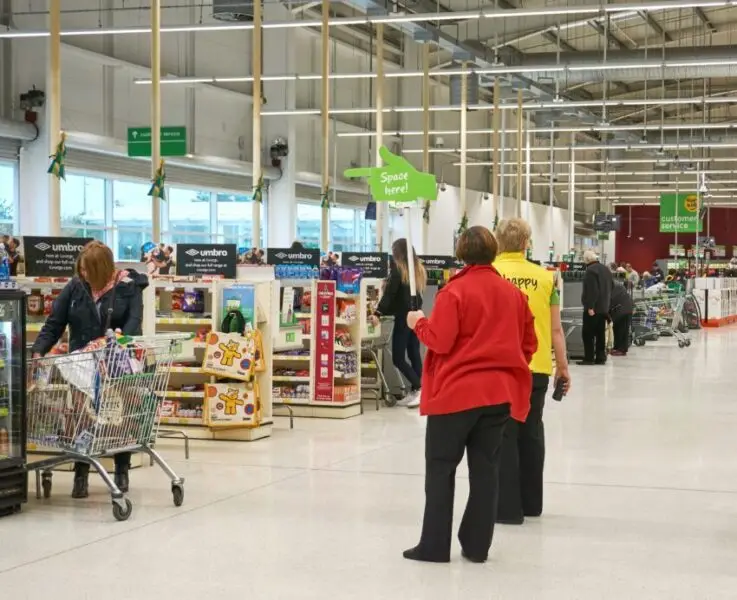Amidst a growing customer demand for better service, Asda has decided to boost staff presence at its checkouts.
This move represents a shift away from the heavy reliance on self-service tills.
Balancing Act Between Self-Service and Manned Checkouts
Asda has announced its plan to invest more hours into manned checkouts. This decision aims to find the right balance between self-service and traditional tills, according to Michael Gleeson, Asda’s chief financial officer. The goal is not to add more checkouts but to staff existing ones more effectively.
“I think we have reached a level of self-checkouts and scan and go where we feel that works best for our customers, and we feel we’ve got the balance just about right,” said Gleeson.
Industry Trends
The move comes amid broader industry trends. Various retailers are reconsidering their reliance on self-service tills. For instance, Booths, a northern supermarket chain, has removed most of its self-service checkouts, claiming that staffed checkouts enhance customer experience.
Booths believes that “colleagues serving customers delivers a better customer experience.”
Customer Feedback
Customer feedback has heavily influenced Asda’s decision. Many shoppers, particularly those with disabilities, have voiced issues with self-service tills.
Pennie Orger, who is registered blind, shared her thoughts: “I am severely sight impaired – registered blind – so, self-service tills are a non-starter. My guide dog is clever, but not that clever.” Deaf customers have also reported challenges due to the reliance on verbal instructions.
Impact on Shoplifting Concerns
Asda has clarified that this decision is not linked to shoplifting concerns.
Despite a recent rise in thefts across England and Wales, Asda insists that their focus remains on improving customer service.
Incidentally, last year saw a worrying increase in shoplifting, with 430,000 cases recorded by police. This was the highest figure in 20 years.
A Brief History of Self-Service Checkouts
Self-service checkouts have come a long way. Their origin can be traced back to the invention of the automated teller machine (ATM) in 1967.
David Humble introduced the first self-service tills in the 1980s.
These tills gained momentum in the 1990s, and by 2021, there were about 325,000 self-service checkouts in stores globally, with around 80,000 in UK supermarkets.
Looking Forward
Asda will roll out these changes over the rest of the year.
Customers can expect to see more staff at checkouts.
This initiative aims to enhance the in-store shopping experience and cater to those who prefer or need human assistance.
Conclusion
In conclusion, Asda’s move to increase human-operated tills aligns with the broader industry trend towards personalised customer service.
This strategic shift aims to cater to diverse customer needs, offering a balanced approach between technology and personal interaction.
It reflects Asda’s commitment to enhancing the overall shopping experience.

